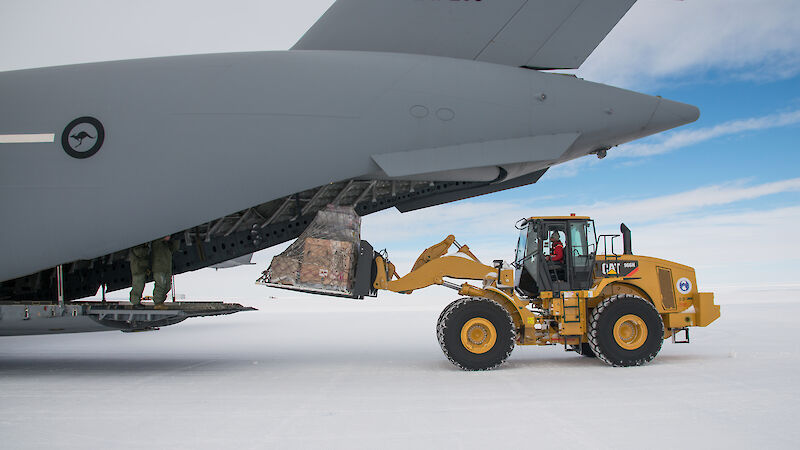Cargo planning framework
The cargo planning framework is a comprehensive system designed to enhance AAD’s cargo delivery processes. The framework is divided into three zones: green, amber, and red, each representing a different stage in the cargo delivery process. The framework applies to all cargo transports, both northbound and southbound.
Green zone
During the green zone, consignors can submit consignments and deliver cargo freely. If a consignment's delivery date falls within the amber or red zones, it will be reviewed for supportability and delivery dates may need to be renegotiated.
Amber zone
In the amber zone, only pre-approved consignments submitted in the green zone can be delivered. New consignments cannot be raised directly in the eCon system; instead, requests must be submitted to the Cargo Planning Team for consideration.
Red zone
The red zone is the most restrictive phase. Only cargo that has been pre-approved for delivery during this period will be accepted. Any late or unplanned consignments will require a rigorous approval process, including endorsement from the SES Branch Head of the Operations and Logistics Branch.
For up-to-date cargo dates and transport schedules for the current season, consignors should refer to the Shipping and Flight Schedules page.
Is your cargo packed and ready for transport?
Before you delivery your cargo to the AAD, ensure it is transport ready:
- Cargo is consigned accurately in eCon
- Unnecessary packaging materials such as tags, boxes and plastic bags have been removed in order to reduce waste on station
- All prohibited items and packing materials have been removed, such as polystyrene beads, chips or similar packaging materials
- Cargo is packed in suitable outer packaging: sturdy fibreboard boxes, durable plastic tubs, or strong duffle bags/packs for soft items
- Packages going to Macquarie Island have been weatherproofed
- Delicate items, such as electronics and glass bottles, are securely packaged with soft materials such as bubble-wrap or clothing
- Packages weigh no more than 15kg, where possible
- Packages are clearly labelled with the receiver's name, contact details, consignment number, destination, and package number
- Dangerous goods are packaged and consigned separately, clearly labelled and have an SDS attached
- Cargo and packaging materials are clean and free of biosecurity risk material and are sufficiently sealed to avoid pest invasion

